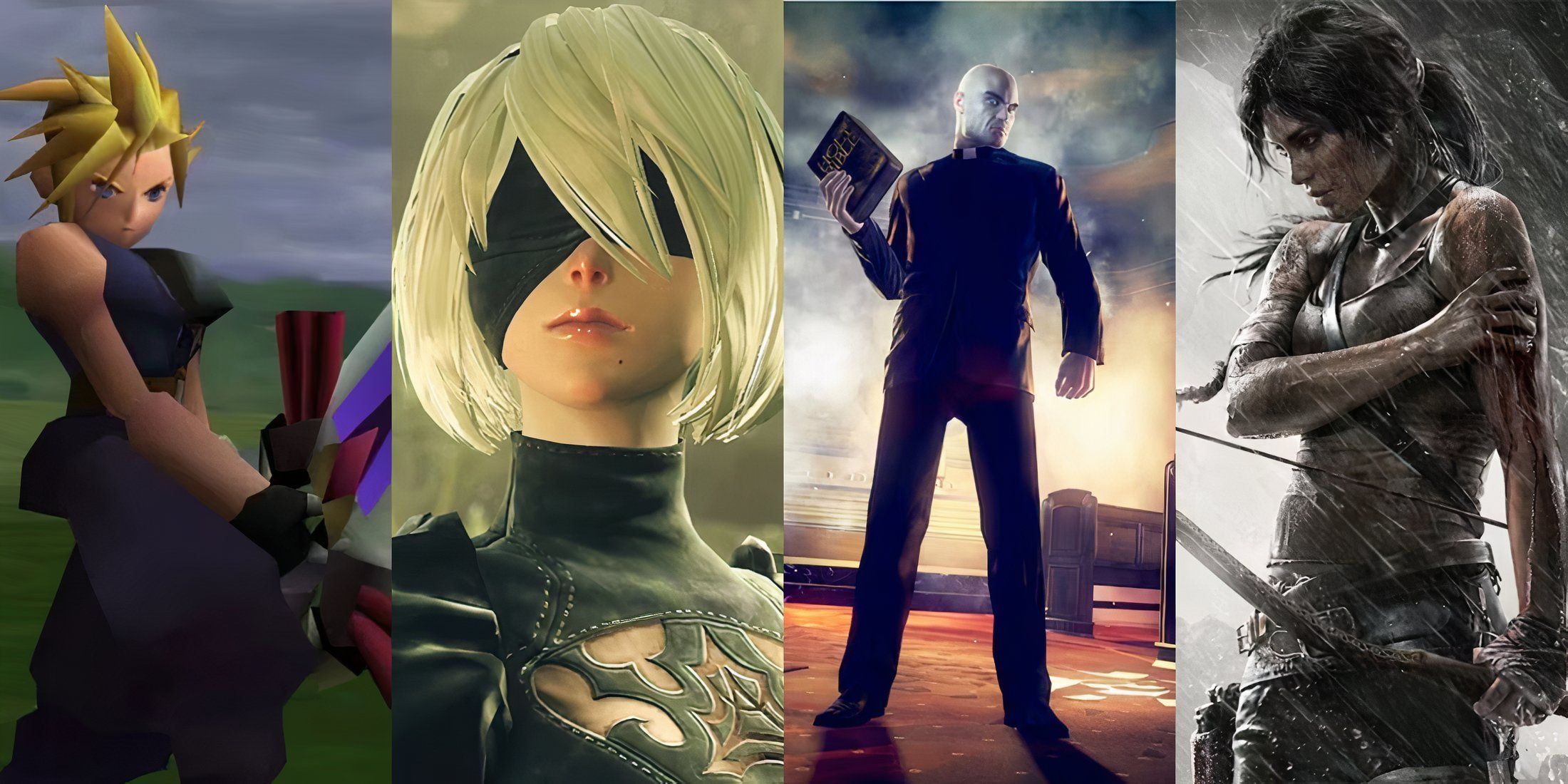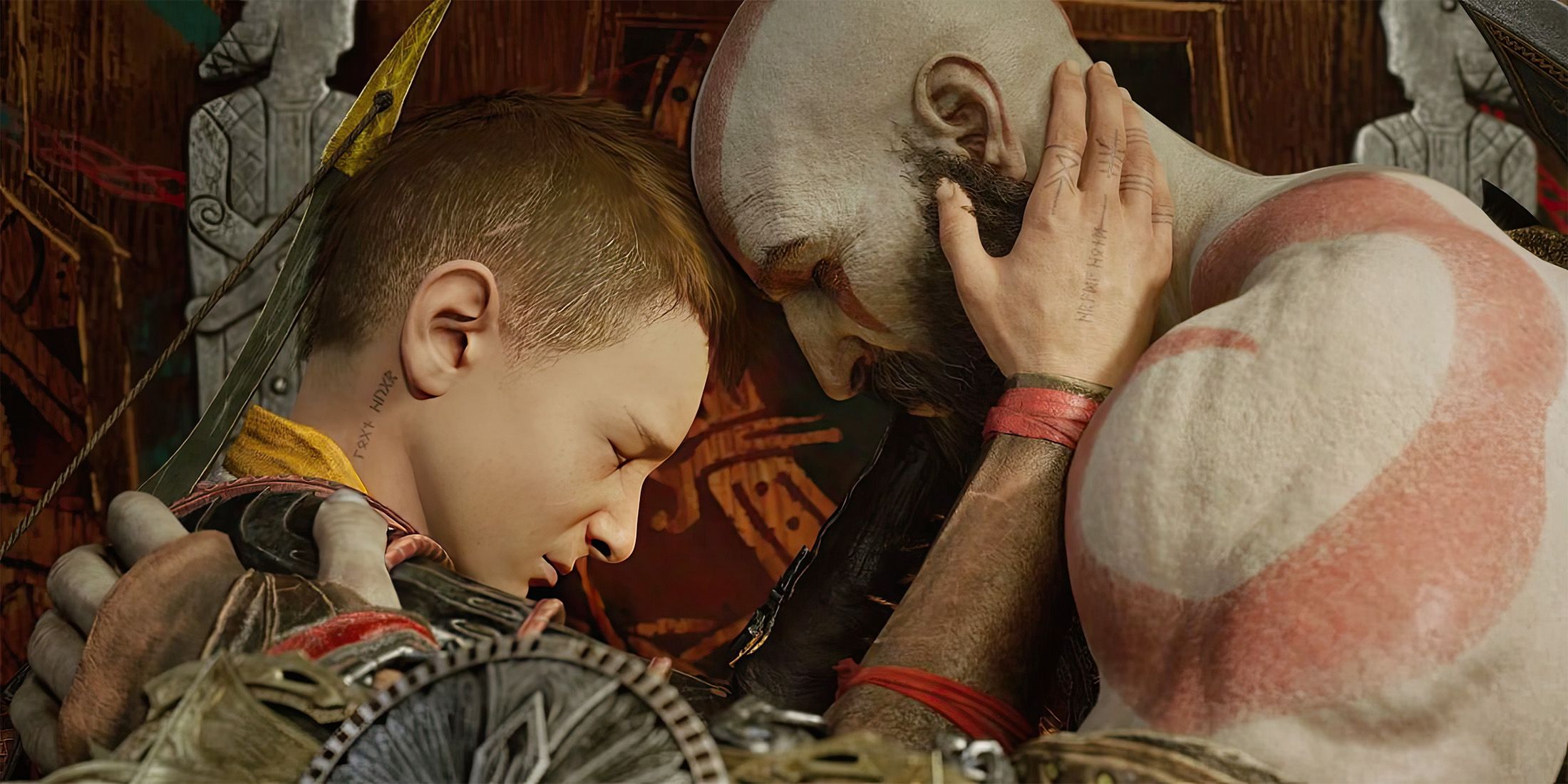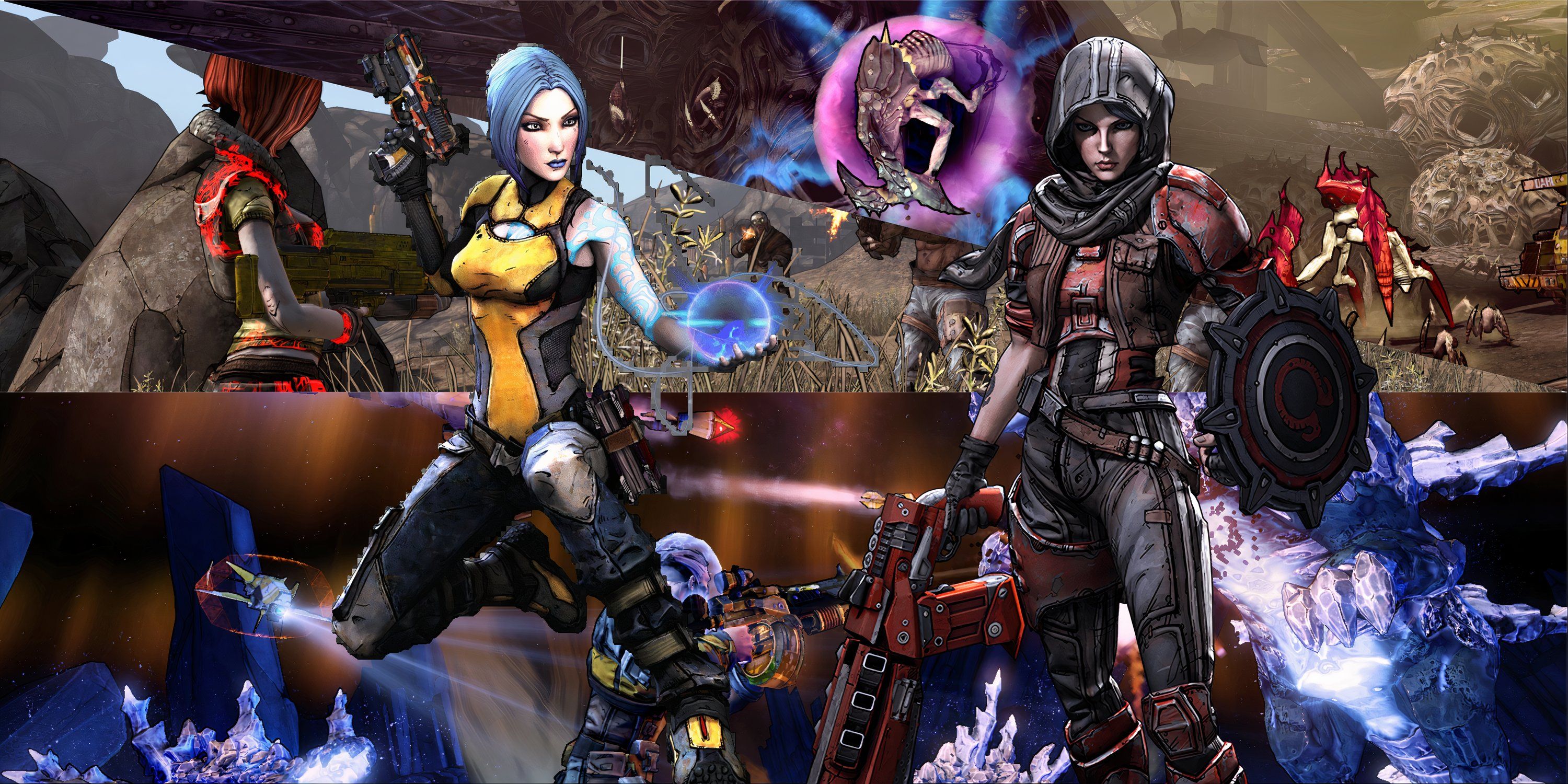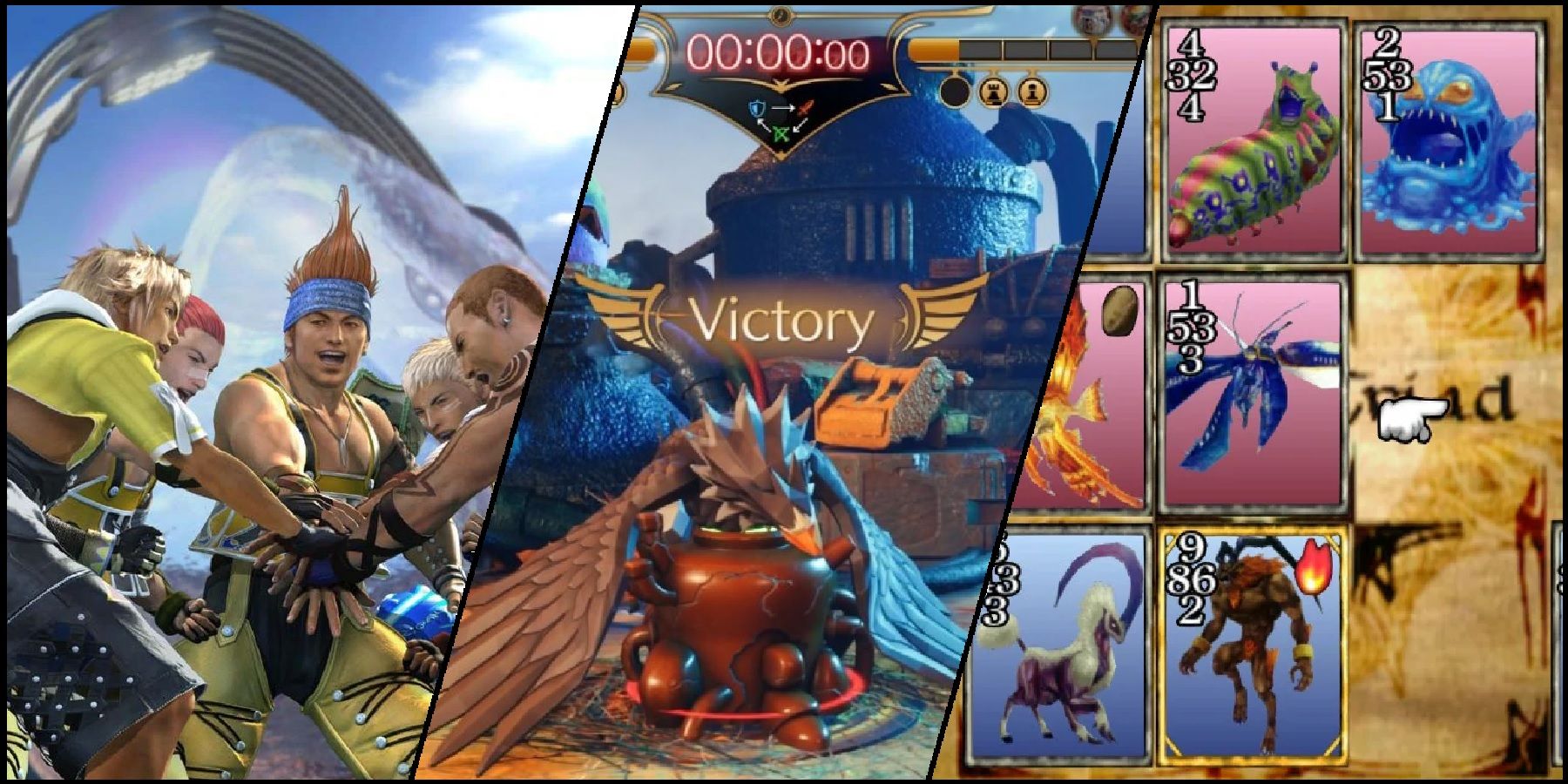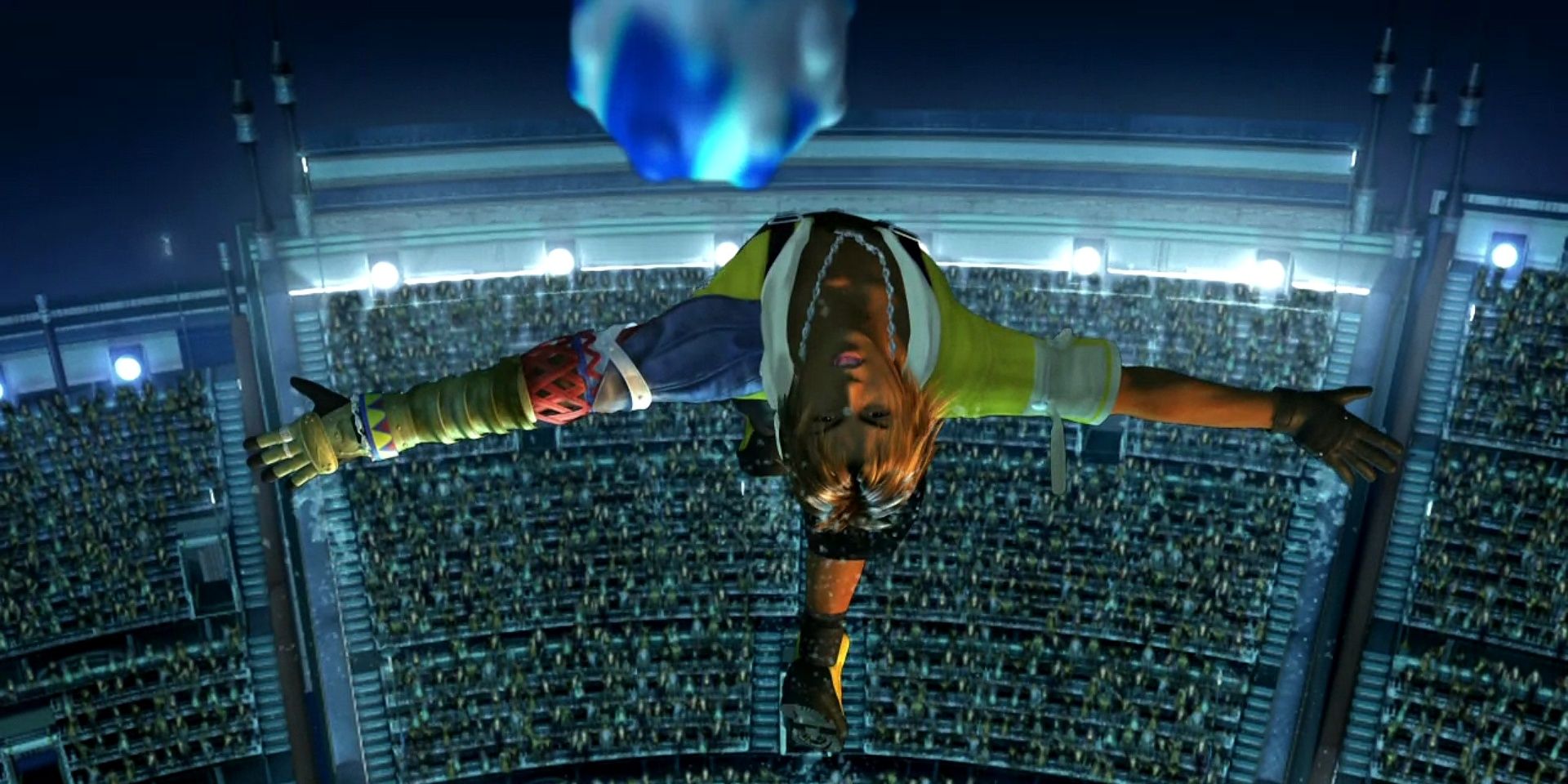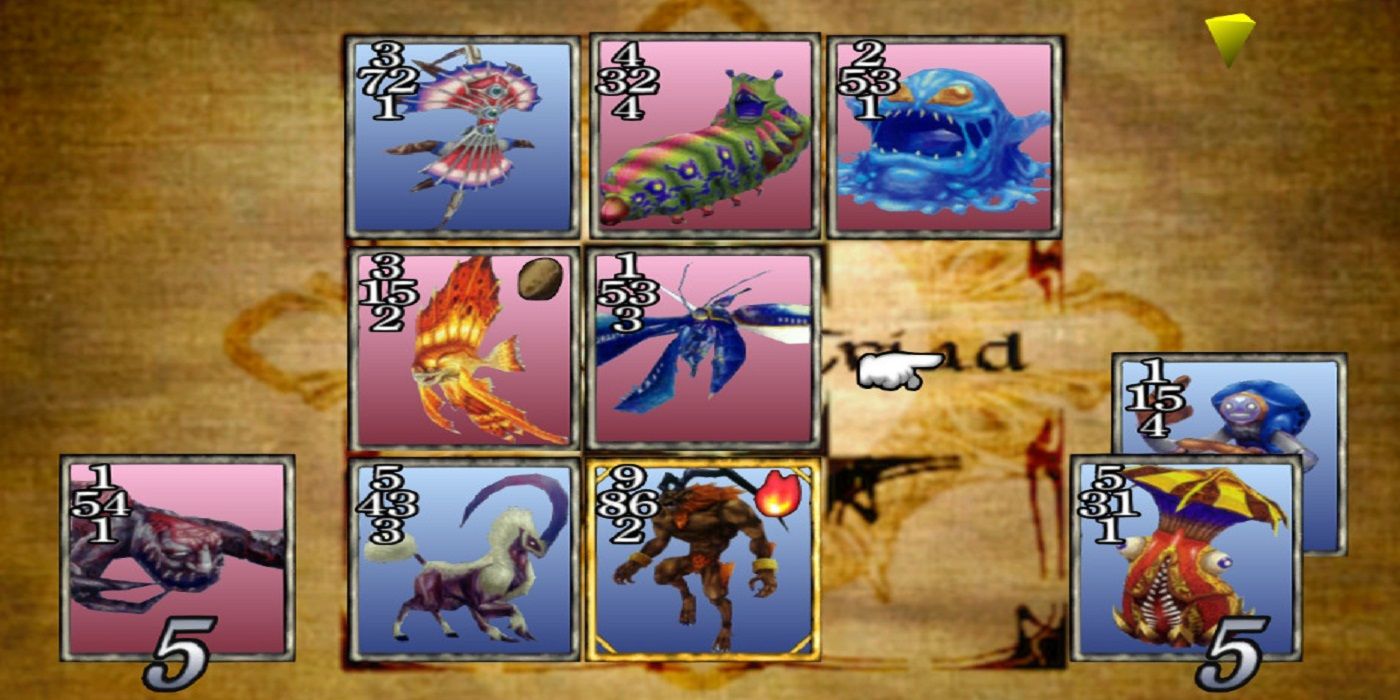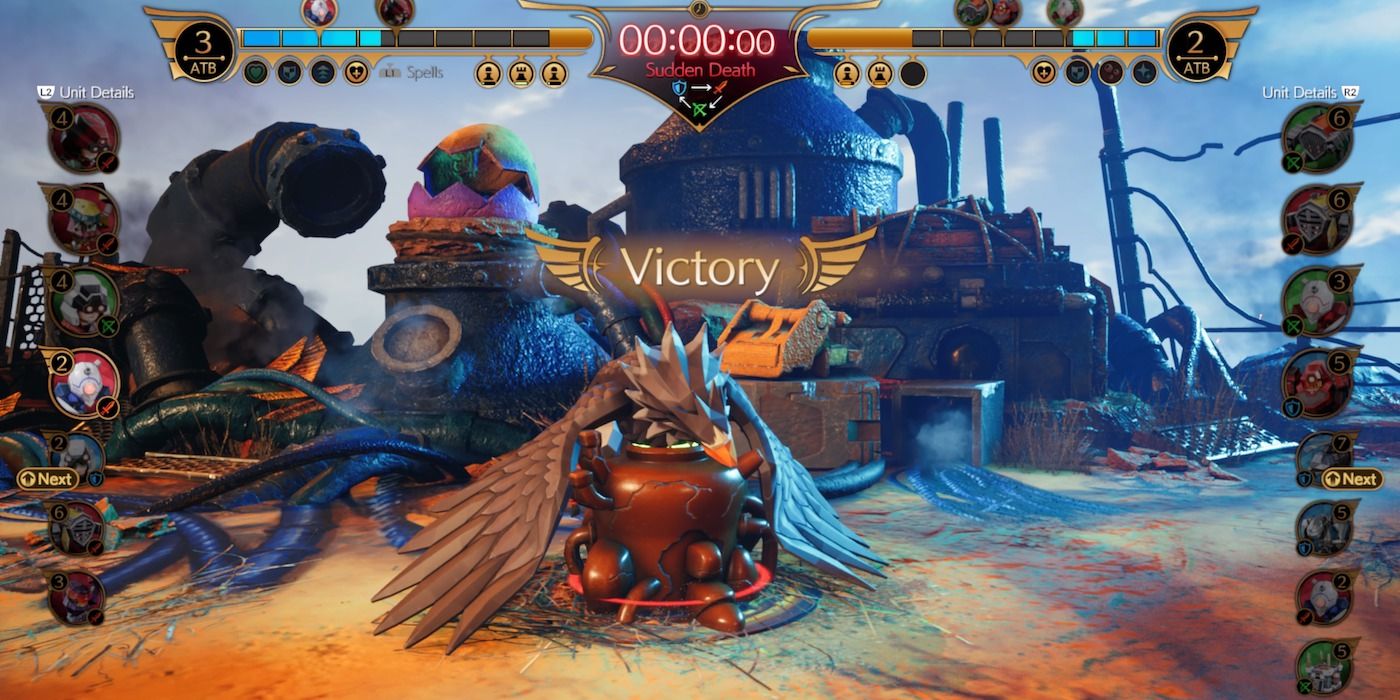The Final Fantasy series has come a long way since first being introduced in 1987, not only extending out into several numbered titles, but also creating direct sequels and spin-offs. However, while Square Enix has previously looked at some popular characters and mini-games to make spin-offs like Chocobo GP, there are plenty that persist from some classic titles that could work as their own standalone experiences.
This is a concept that has worked with other franchises as well, most notably with the way that the Witcher series managed to turn the Gwent mini-game into its own standalone title. In that case, some of the most popular mini-games from some classic Final Fantasy titles could follow this blueprint to expand on some fan-favorite games that deserve to be revisited.
Final Fantasy 10's Blitzball
One perfect example of a mini-game that would work as a standalone title is Blitzball from Final Fantasy 10, the underwater version of rugby that defines protagonist Tidus' backstory. In the original narrative context, Blitzball acts as the primary form of entertainment for the world of Spira. However, as a mini-game, the sport is both a post game alternative to the cycle of Final Fantasy 10's combat, as well as the path to unlocking Wakka's overdrives and eventually his ultimate weapon.
As a standalone title, Blitzball already has the entire sports genre of gaming in order to draw inspiration from, complete with player rosters and team managing career modes. The version already included in Final Fantasy 10 already has a roster of Blitzball players that can be recruited onto a team when working towards those rewards related to Wakka's overdrives and weapon. Of course, it wouldn't be completely accurate to say that Blitzball wouldn't need at least a little fine-tuning in order to stand on its own without the rest of Final Fantasy 10 supporting it.
The biggest fix that Blitzball would need is to alter the RNG around player stats, in addition to being more transparent about how this level of randomness can affect gameplay. Specifically, this would mean that a Blitzball player kicking for the goal with a shot score of 10 through two opponents with block scores of 6 and a goalie with a catch score of 12 probably shouldn't still have a coin flip chance of success. Additionally, an expanded roster of players and better balanced teams would help if Square Enix had any aspirations to turn Blitzball into a standalone game, or even reintroduce the mini-game in a new Final Fantasy 10 title.
Final Fantasy 8's Triple Triad
While it might not have gripped every player at the time, Final Fantasy 8's Triple Triad is so popular that it has even made its way into the more recent Final Fantasy 14. This newest version has already given the somewhat basic card game some new quality of life features it has needed, but Square Enix can still go further.
Much like other spin-off titles like World of Final Fantasy, Square Enix has already given a specific focus on the monsters that make regular appearances across the franchise. Given the way that Triple Triad in Final Fantasy 8 uses monsters as the basis for the cards, this would be just as good of an opportunity as any other spin-off to showcase the designs of monsters across the history of the series. Pulling it out of a single game world could even let Triple Triad expand out to different deck builds, with monsters coming from different games and having a synergy with each other based on the title they originate from.
Given that the Final Fantasy 14 version of Triple Triad has already introduced a method for players to challenge each other, much of the groundwork is already completed for a full standalone title. From there, Square Enix could follow some of the models that have been shown to be successful in Magic Arena, Yu-Gi-Oh! Master Duel, or Hearthstone to make a digital TCG run smoothly. Of course, that would also mean being careful to avoid more predatory microtransactions in a live-service title, which has notoriously been a hurdle for Square Enix in previous games like Chocobo GP.
Final Fantasy 7's Fort Condor
The latest mini-game to mention is Fort Condor, which was first introduced all the way back in 1997 as a side quest in Final Fantasy 7, but made a new appearance in 2021. As a part of the Intermission DLC for Final Fantasy 7 Remake, Square Enix gave the Fort Condor strategy mini-game a mechanical overhaul and a more friendly in-universe introduction. While there are still some issues with certain boards and game pieces being overpowered in this latest version, much of that can be chalked up to making this a difficult game to overcome in a single-player title.
One thing that Fort Condor could use more than anything is expansion into multiplayer, similar to how Final Fantasy 14 had already done for Triple Triad. Essentially, balancing the boards to be less of a matter of bigger numbers wins easier and gives players more nuanced decisions for both their overarching strategy as well as reorganizing at the moment. It's a concept that could also be explored in more Final Fantasy 7 Remake DLCs before jumping all the way into a standalone title with the current build of the mini-game.
Similar to Triple Triad, this could also expand beyond Final Fantasy 7 and give players the chance to control different monsters and soldiers from across the franchise. Considering the powerful monsters across Final Fantasy lore, this could open Fort Condor up to being more that just soldiers fighting soldiers and have players pitting Malboros against Tonberries. The list of possible monster combinations could also see different variants of each enemy from different games facing off against each other. Regardless, this would also work to give players the ability to gather digital collectibles that have an actual use in a game similar to Triple Triad.

